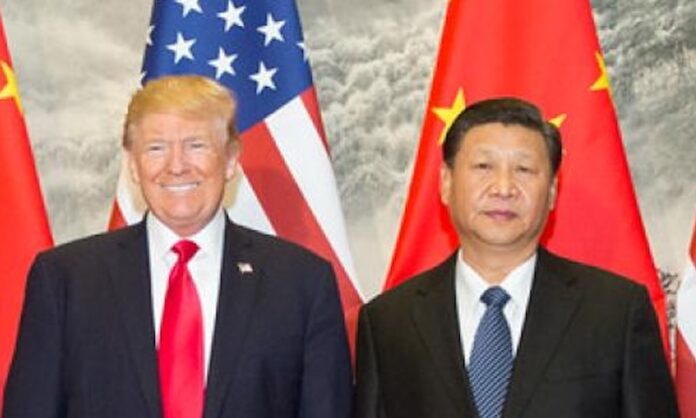The recent escalation in trade tensions between the United States and China has sent shockwaves across the global economy. After US President Donald Trump imposed tariffs on countries worldwide, Beijing wasted no time in retaliating with its own set of tariffs on US imports.
On Friday, Chinese authorities announced that they would be imposing a 34% tariff on all imports from the US, effective April 10. This move comes in response to the tariffs already in place and mirrors the actions taken by the US against China earlier in the week. Any cargo loaded onto ships before April 10 will not be subject to the new tariff if it arrives before May 13.
The State Council Tariff Commission of China criticized the US for its tariff policies, stating that they are not in line with international trade rules and undermine China’s legitimate rights and interests. The Commission described Trump’s actions as a form of “unilateral bullying” that is detrimental to both economies.
In addition to the tariffs, China also added 11 US companies to an “unreliable entity list” and imposed export controls on 16 US firms to restrict the export of Chinese dual-use items. These measures are expected to have a negative impact on trade between the two countries and could potentially hurt economic growth.
Niels Rasmussen, chief analyst at shipping association BIMCO, expressed concerns about the impact of the tariffs on the US agricultural sector, which accounts for a significant portion of exports to China. He also noted that the dry bulk shipping industry could be affected, particularly in the panamax and supramax segments.
With key commodities like grains, coal, and petcoke becoming more expensive due to the tariffs, China may seek alternative markets such as Brazil, Ukraine, Indonesia, Russia, Australia, and Mongolia. While tanker trades may not be as severely impacted, as China can turn to OPEC and Brazil for replacement volumes, there is still a risk of broader economic slowdown due to the cumulative effect of multiple tariff increases.
Rasmussen emphasized the need for both countries to find a resolution to the trade dispute to prevent further damage to their economies. The uncertainty and volatility created by the tariffs could have far-reaching consequences beyond just the direct impact on trade, affecting economic activity on a global scale.
As the US-China trade war continues to escalate, businesses and industries on both sides are bracing for the potential fallout. It remains to be seen how long these tariffs will remain in place and what further retaliatory measures may be taken by either country. In the meantime, stakeholders are urged to closely monitor developments and prepare for any potential disruptions to trade and economic growth.




